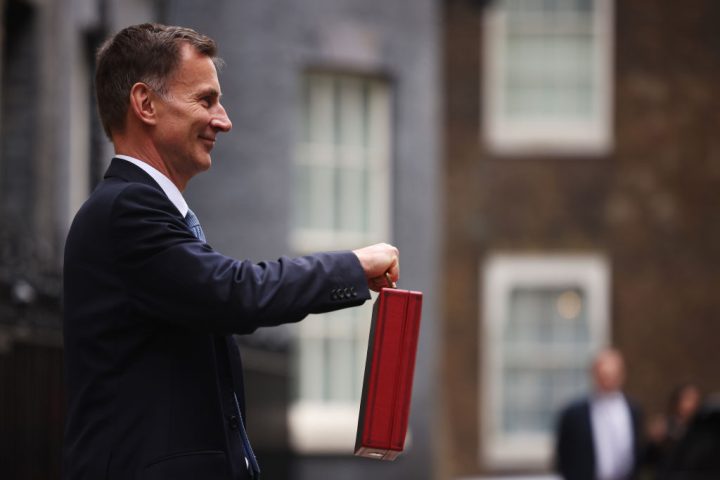Jeremy Hunt has just delivered his second Budget as Chancellor. The top message the Chancellor wants to push is that Britain will avoid recession. But the Office for Budget Responsibility’s report suggests immigration may be the real story.
Among the policy announcements were an extension to the energy price guarantee, currently at £2,500, to July (effectively scrapping the price hike), committing £5 billion to fund free childcare for one and two year-olds and abolishing the pension Lifetime Allowance. But what else did we learn from today’s Budget?
- The Chancellor began with good news: no recession. The UK economy will avoid a technical recession this year. The country’s economy will shrink by 0.2 per cent but this does not meet the two consecutive quarters definition accepted by economists.
- The UK is forecast to have the worst growth in the G7 this year but the best next year. Single year growth will go from being the worst in the G7 to the best over the next two years, according to the OBR.
- However, on a cumulative basis we’re still the worst of the G7 countries. The UK won’t recover from the pandemic until early next year.
- Net migration plays a huge role in this Budget. It’s expected to settle at 40,000 a year higher than in November and this will contribute 0.5 per cent to GDP by 2027. That means some 1.6 million migrants will settle in the UK over the next five years.
- Inflation is forecast to fall to 2.9 per cent by the end of this year. ‘That is more than halving inflation', said Jeremy Hunt. But this was forecast to happen long before Sunak and Hunt took over from Truss and Kwarteng.
- The tax burden continues to climb and will reach a 75-year high in 2024-25 – and it will keep rising. Britain is now a big state, and big states need a lot of taxes. Public spending as a share of GDP is due to settle at 43.4 per cent. The OBR calls this: ‘the highest sustained level since the 1970s.’
- Contrary to the government’s claims, debt will not start falling at all. The Chancellor points to a fall in debt as a share of GDP. But in monetary value it will just keep on shooting up.
- The pensions Lifetime Allowance of £1 million will be abolished. ‘This stops over 80 per cent of NHS doctors’ from paying pension tax, the Chancellor said.
- Living standards face their worst fall since the 1950s. The OBR’s estimates for real gross domestic income have slightly improved on the November forecast but they still mean the worst fall in living standards for generations.
- Fuel duty has been frozen and the 5p cut announced last year has been extended. This will be a help to motorists who have seen prices at the pumps fall 23 per cent in recent months to 147p per litre. However the taxman is still to blame for over half of that amount.
- Energy price guarantee raise delayed. The energy price guarantee – the amount at which the government will start to cover costs if the energy cap goes higher – had a planned rise to £3,000, which has now been delayed until July. It will instead remain at £2,500 for a typical household. Households on prepayment meters will no longer pay a premium for not using direct debit.
- …But it’s effectively costing the government nothing because gas spot and future prices have collapsed. Prices have been falling for months and the energy cap is now forecast to fall to just over £2,000 in July. As a result it’s unlikely the Treasury will have to fork out for the energy guarantee much longer.
You can follow these metrics every day on the budget page of The Spectator’s data hub.







Comments